The Center for Rural Pennsylvania Board of Directors heard testimony at Pennsylvania College of Technology on Thursday morning about rural workforce availability and population change.
Presenters at the 2½-hour hearing, held in the college's Thompson Professional Development Center, addressed strategies that workforce development organizations, economic development agencies and employers are taking to recruit and retain the rural workforce considering shrinking populations in rural areas.
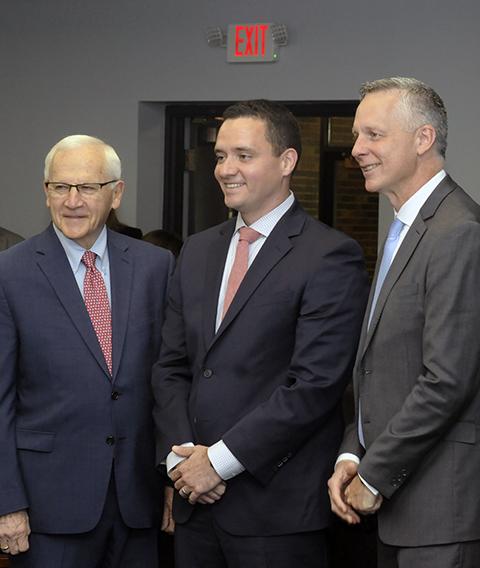
Kevin Sunday (center), director of government affairs, Pennsylvania Chamber of Business and Industry, joins Sen. Gene Yaw (left) and President Michael J. Reed prior to Thursday's hearing. Sunday's wife, the former Heather R. Layendecker, holds Penn College degrees in dental hygiene (2010) and dental hygiene: health policy & administration concentration (2013).
The proceedings, which overlapped topic-wise with last week's hearing before the state Senate Majority Policy Committee exploring workforce challenges in the commonwealth's predominantly rural counties, also highlighted recent research into ways that communities can help reverse population decline by engaging in revitalization efforts and attracting new residents to those areas.
Nearly 90% of Penn College students hail from Pennsylvania, and two-thirds (66.7%) of those are from rural areas of the state, President Michael J. Reed said in his welcoming remarks..
"The majority of our graduates remain in Pennsylvania to work, and two-thirds (65.6%) report being employed in rural areas of the commonwealth," he added. "Nearly a quarter (24.9%) of our Pennsylvania graduates, between 2014-22, tell us they have remained in Lycoming County to begin their careers.
"Clearly, we continue to do our part to address business and industry needs in rural portions of Pennsylvania."
Thursday's hearing was segmented into four themed sections: Issues Facing the Rural Workforce, the Role of Education and Workforce Development, Strengthening Rural Pennsylvania Communities – Research Perspectives From the Brookings Institution, and New Research on Attracting Residents and Workers to Rural Pennsylvania.
The Center for Rural Pennsylvania board is led by State Sen. Gene Yaw (R-Loyalsock Township), who also chairs the college's board of directors. The visit had full participation from the center's 12-member board, which includes Shannon M. Munro, vice president for workforce development at Penn College.
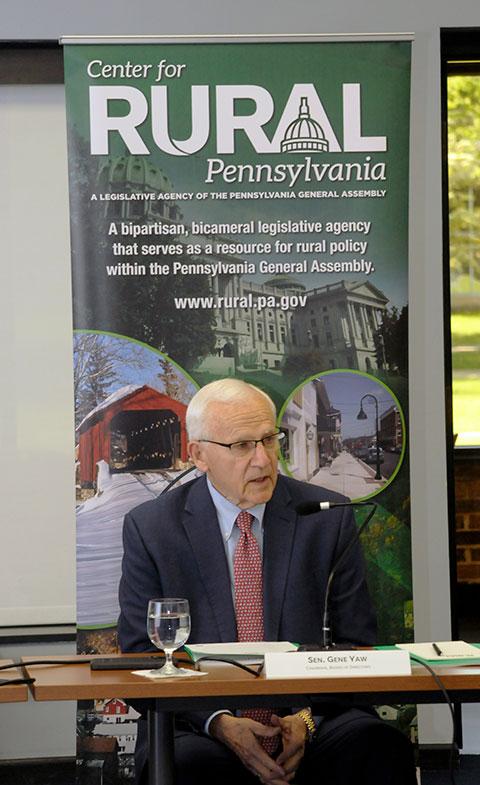
Yaw calls the meeting to order, in front of a pull-up explanation of the agency's mission.
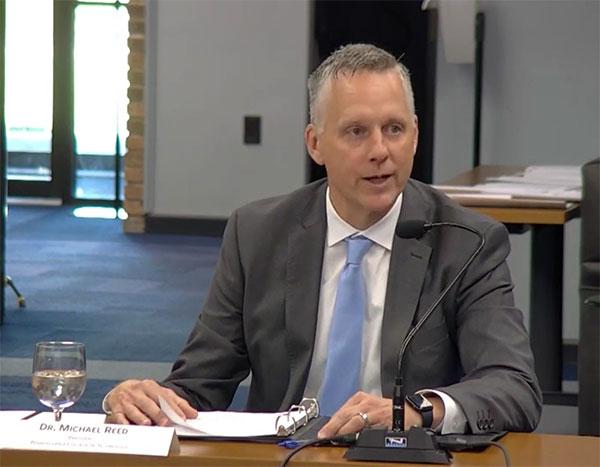
"Pennsylvania College of Technology, a public institution offering approximately 100 programs – most of them aligned with and supporting high-demand, STEM-related health care and engineering technology occupations – is well-suited to address rural workforce challenges within our commonwealth," Reed said in his welcoming remarks to the board. "Our educational approach enables us to produce a steady stream of highly trained graduates to address persistent skill gaps in business and industry."
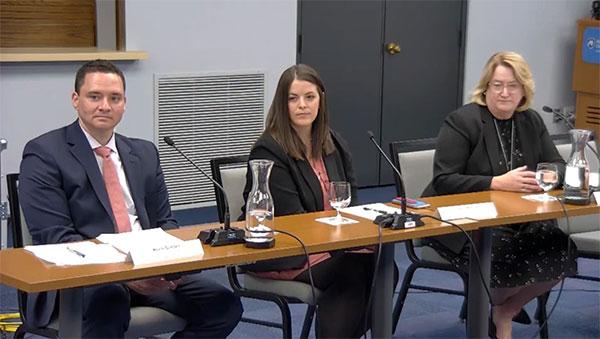
Comprising the day's first panel are proven Penn College advocates (from left) Sunday; Carrie Amann, executive director, Pennsylvania Workforce Development Association; and Patti Jackson-Gehris, chief operating officer, UPMC North Central Pennsylvania, and president, UPMC Williamsport.
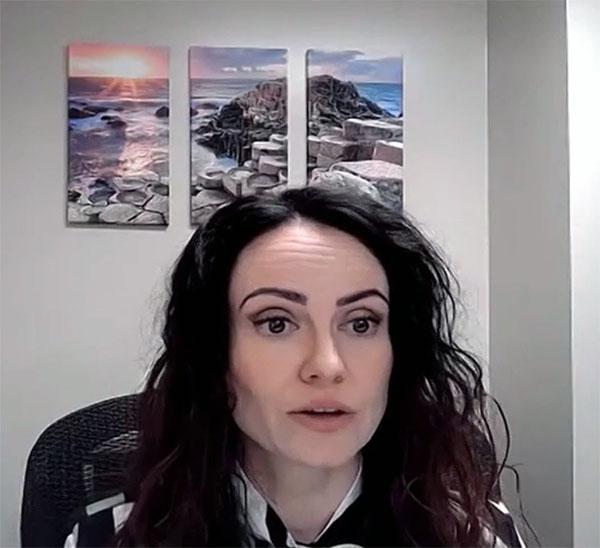
Among the day's other panelists (appearing virtually) is Courtney L. Fasnacht, executive director of Northeast Pennsylvania Manufacturers and Employers Council, whose organization administers the YES (Your Employability Skills) program. Over the past two years, annually renewable YES scholarships of $2,000 each have been awarded to 19 Penn College students. Fasnacht was on a panel with George Stark, director of external affairs for Coterra Energy, an Educational Improvement Tax Credit donor to the college's dual enrollment program and a member of the Heritage Society ($50,000 to $99,999).
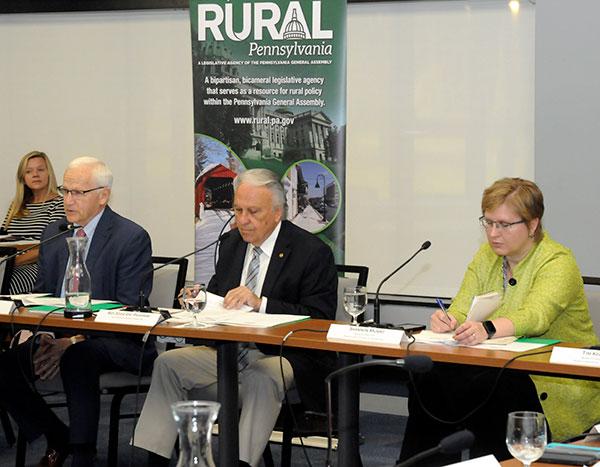
Questioning witnesses and taking notes (from left) are Yaw; state Rep. Eddie Day Pashinski (D-Wilkes-Barre), vice chair; and Munro.
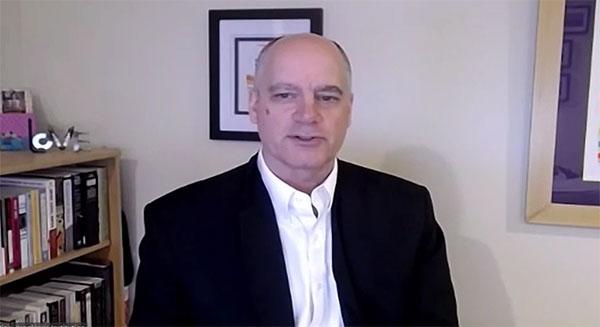
One of two thought leaders testifying via Zoom from the Brookings Institution, Anthony F. Pipa, brings a personal perspective to his professional analysis. A senior fellow in Brookings' Center for Sustainable Development, he is an Elysburg native who inaugurated his podcast by showcasing a mine-reclamation project in Shamokin.
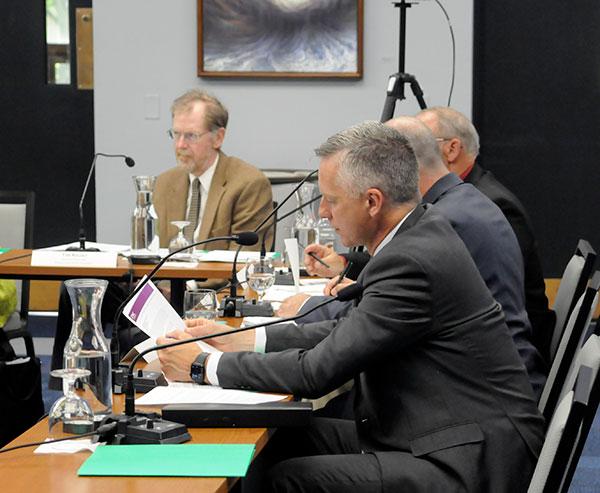
Reed (foreground) and board members intently follow the testimony. With the president (clockwise from left) are Timothy Kelsey, from Penn State; state Rep. Dan Moul (R-Gettysburg); and Darrin Youker, the governor's representative on the center's board.
